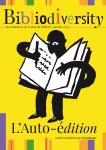
Qu’est-ce que le commerce équitable aujourd’hui ? Qui en sont les principaux acteurs ? Quel est son avenir ? Autant de questions auxquelles ce livre se propose de répondre à travers sept expériences sur le terrain dans différentes régions du monde. Au gré de ce voyage, le lecteur partira notamment au Chiapas au cœur d’une petite organisation de producteurs de café, en Bolivie au sein d’une exploitation de quinoa, en Inde pour explorer des formes moins traditionnelles de commerce équitable…
Cet ouvrage invite à découvrir les multiples visages d’un mouvement en pleine expansion qui cherche à retrouver l’humain derrière le consommateur, la communauté derrière le producteur et à redéfinir le lien social et politique entre ceux qu’on a trop longtemps réduits à des agents économiques désincarnés. En marge des critiques stériles qui l’assaillent ces dernières années, mais sans pour autant glisser dans un discours idéalisé, les auteurs offrent de réfléchir aux enjeux que le commerce équitable soulève en regard des appels à un commerce international plus juste et des possibilités d’un marché alternatif fondé sur d’autres valeurs.
Corinne GENDRON est professeure titulaire au département Stratégie, responsabilité sociale et environnementale à l’Université du Québec à Montréal (UQÀM) et titulaire de la Chaire de responsabilité sociale et de développement durable. Elle a écrit plusieurs ouvrages et articles sur le commerce équitable ainsi que sur le développement durable et la responsabilité sociale. Elle intervient régulièrement en qualité d’experte auprès d’organismes privés et publics au Québec et à l’international.
Socio-économiste spécialisé en économie solidaire et en commerce équitable, Arturo PALMA TORRES est actuellement expert associé au CRIDA (France) et consultant au ministère du Développement agraire brésilien. Il est membre du mouvement pour l’économie solidaire en France et du réseau international ALOE (Alliance pour une économie pluriel, responsable et solidaire).
Titulaire d’une maîtrise en sciences de l’environnement, Véronique BISAILLPON est coordonnatrice de la Chaire de responsabilité sociale et de développement durable de l’École des sciences de la gestion de l’Université du Québec à Montréal (UQÀM).
Date de publication : 2009, 274 pages, 14 X 21,5 cm, ISBN : 978-2-84377-148-4
























